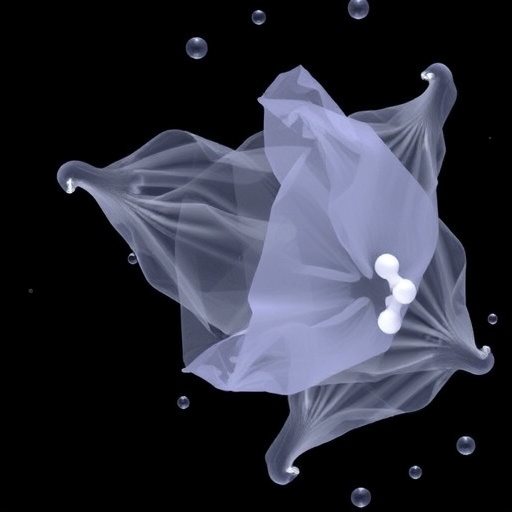Plastic waste is an escalating crisis reshaping our ecosystems. With a significant portion of plastic waste ending up incinerated, buried in landfills, or released into the environment, we are witnessing a dramatic increase in pollution levels across aquatic and terrestrial habitats. This persistent accumulation of plastic has prompted urgent calls for innovative waste management solutions. Among the most promising advancements in this realm is the realm of biocatalysis, a field that harnesses the power of enzymes to transform synthetic polyesters back into their original components, which could pave the way for a sustainable recycling revolution.
Focusing on polyethylene terephthalate (PET), a predominant polymer used widely in textiles, food packaging, and countless consumer products, biocatalysis emerges as a beacon of hope. PET, due to its durability and resilience, is notoriously challenging to break down and often escapes traditional recycling efforts. However, polyester hydrolases, a type of enzyme, have demonstrated the capability to deconstruct such recalcitrant synthetic polymers effectively. By mimicking natural processes, these enzymes can facilitate the breakdown of plastic into smaller, reusable components at an industrial scale.
Recent reviews of the role of biocatalysis in the process of creating a circular economy for plastics underline the potential of enzymatic strategies to manage plastic waste effectively. Enzymatic modification, alongside deconstruction methodologies for synthetic polyesters, emerges as a critical strategy for mitigating plastic waste. Not only does this approach offer an environmentally friendly method of recycling, but it also holds the potential to be integrated into existing industrial frameworks that manage plastic products.
As research in biocatalysis advances, protein engineering and computational biology play increasingly prominent roles in the design and optimization of polyester hydrolases. Through advancements in molecular biology and bioinformatics, scientists are now able to tailor enzymes with the specific characteristics required for large-scale recycling operations. This precision enables the development of hydrolases that can withstand high temperatures and varying pH levels, making them versatile tools in waste management.
The economic aspects of biocatalysis are equally vital in understanding its viability as a sustainable recycling approach. While the environmental benefits are clear, ensuring that biocatalytic processes are cost-effective is crucial for their widespread adoption within industry. Innovative strategies must be implemented to reduce the costs associated with enzyme production, transportation, and long-term storage. By addressing these economic challenges, biocatalysis can not only contribute to sustainable practices but also potentially offer financial incentives for industries transitioning away from traditional recycling methods.
At the core of this biocatalytic transition lies the promise of a circular economy, which emphasizes resource efficiency and reduces waste. By designing processes that allow plastic to be reused indefinitely, biocatalysis can redefine the lifecycle of synthetic polymers. This transformation could significantly lessen the long-term environmental footprint of plastics, which currently poses a threat to biodiversity and human health. The shift from a linear “take-make-dispose” model to an integrated system where materials are continually repurposed is not only necessary but increasingly feasible with ongoing advancements in biocatalytic technology.
Moreover, the collaboration between researchers, industry stakeholders, and policymakers is crucial in facilitating this transition. By fostering partnerships across disciplines, we can accelerate the development of robust enzymatic solutions that address the global plastic waste challenge. Mobilizing resources and expertise from diverse sectors can accelerate the optimization of polyester hydrolases, leading to breakthroughs that specifically target the barriers currently faced in plastic recycling.
Incorporating biocatalysis into standard waste management practices can enhance society’s overall sustainability goals. Beyond recycling, the application of enzymatic processes can lead to the creation of new bio-based products, potentially reducing dependence on fossil fuels and synthetic chemicals derived from petroleum. As such, the overarching narrative of this technological evolution is one that promotes not only environmental conservation but also innovation in product development.
The importance of educating the public and raising awareness about the role of biocatalysis in combating plastic pollution cannot be overstated. Engaging consumers through outreach and education initiatives will enhance understanding of how their choices can make a difference. By recognizing the value of recycling and supporting products made from biocatalytically recycled materials, consumers can drive demand for sustainable practices that utilize these enzymes.
Furthermore, with the rise of synthetic biology and genomic editing technologies, the future of biocatalysis appears even more promising. Researchers are exploring the potential to harness microbial communities and engineer them to perform complex recycling tasks at faster rates. This could lead to significant advancements in how we approach not only plastic waste but other types of biodegradable materials, forging a new path for waste management that aligns with global sustainability goals.
As we continue to grapple with the pressing issue of plastic pollution, the implications of biocatalysis extend far beyond just recycling. The intertwined relationships between biotechnology, environmental science, and economic viability position this approach as a cornerstone in our fight against waste. Ultimately, biocatalysis holds the promise of transforming not only the materials we use but the very systems we have in place to manage them.
In conclusion, the advancements in biocatalysis and the application of polyester-degrading enzymes represent a significant leap toward a more sustainable future. With the growing focus on establishing circular economies around plastics, this technology stands at the forefront of managing and mitigating plastic waste. As research continues to evolve, we may find ourselves on the cusp of a new era in waste management that honors ecological integrity while fostering innovation and economic growth. The time for a transformative change is now, and biocatalysis may just be the key to unlocking a cleaner, more sustainable world.
Subject of Research: Biocatalysis in plastic waste management
Article Title: Polyester-degrading enzymes in a circular economy of plastics
Article References:
Zimmermann, W. Polyester-degrading enzymes in a circular economy of plastics.
Nat Rev Bioeng 3, 681–696 (2025). https://doi.org/10.1038/s44222-025-00308-3
Image Credits: AI Generated
DOI: 10.1038/s44222-025-00308-3
Keywords: Biocatalysis, polyester hydrolases, PET recycling, circular economy, enzyme engineering, sustainable management, plastic pollution.




